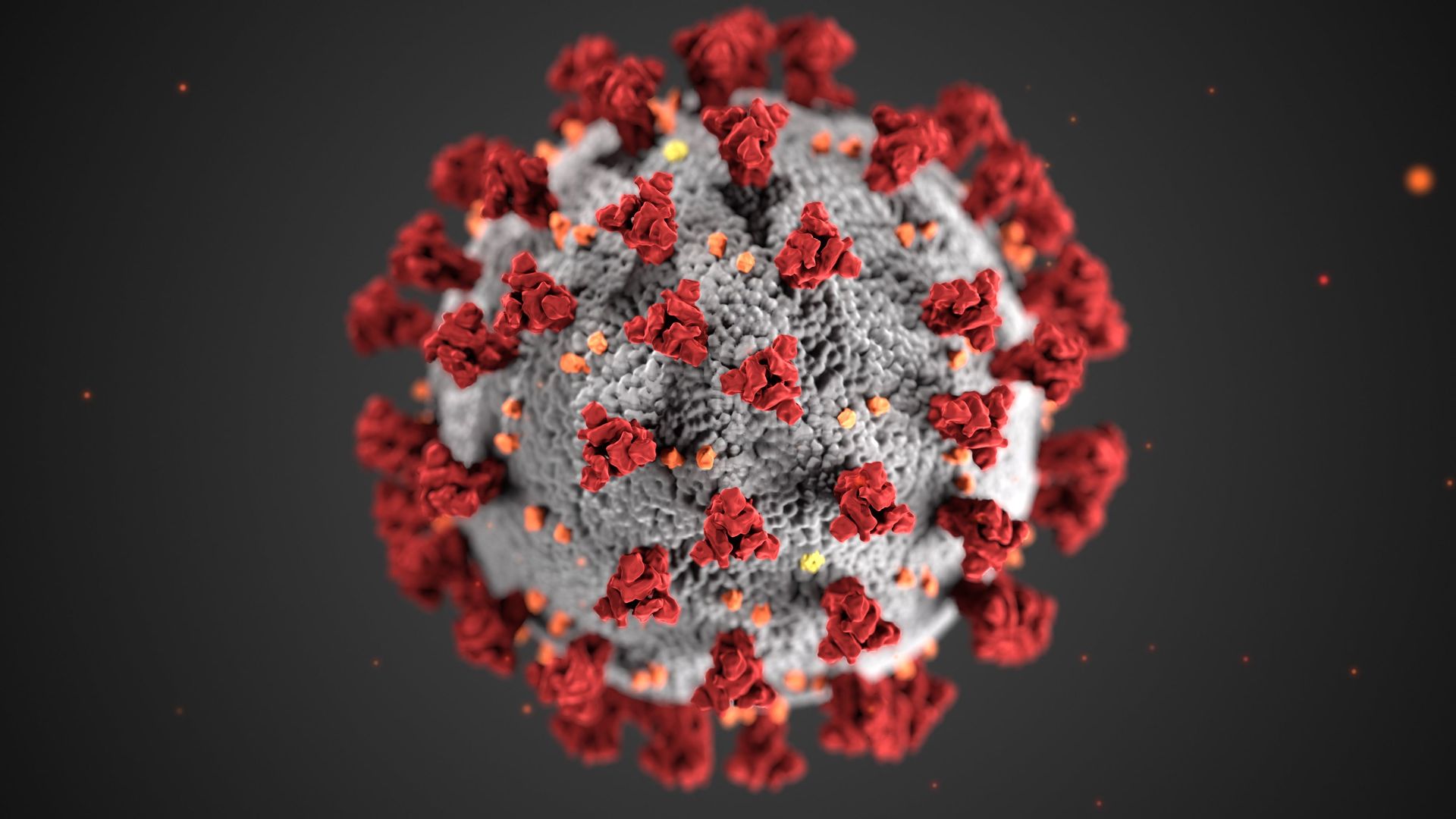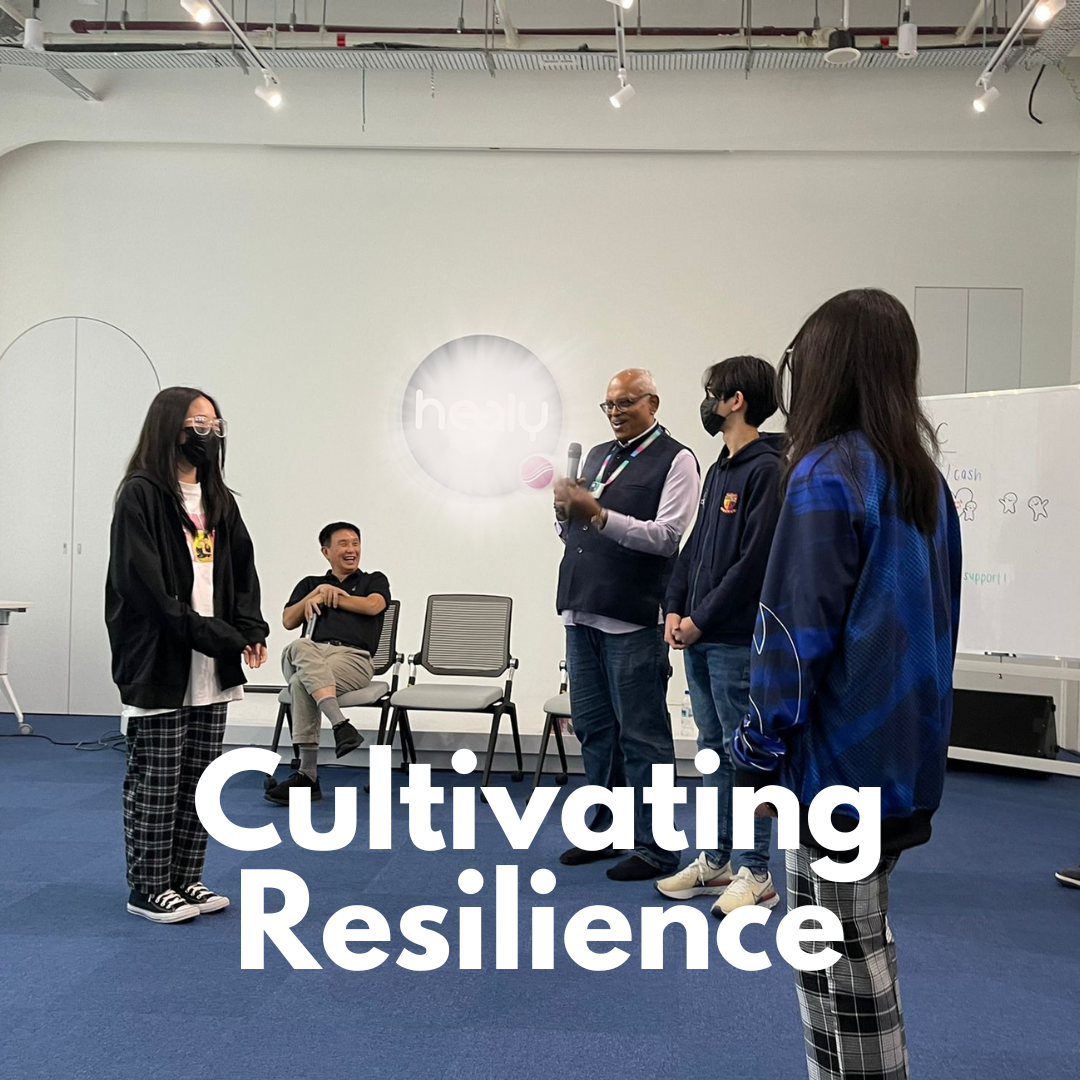
Introduction:
The journey of cancer treatment often involves a combination of conventional medical approaches and complementary therapies. Naturopathy, a holistic system of healthcare, focuses on addressing the root causes of illness and supporting the body's natural healing processes. In this blog, we will explore six shockingly effective ways in which naturopathy can be integrated into cancer treatment, promoting overall well-being and enhancing the body's ability to fight the disease.
1. Nutritional Therapy:
Proper nutrition is a fundamental pillar of naturopathic cancer care, focusing on providing the body with essential nutrients, supporting immune function, and optimizing overall well-being. Incorporating food intolerance tests as part of the naturopathic approach to cancer treatment further enhances the effectiveness of nutritional interventions. Here's why proper nutrition, including food intolerance testing, is considered a powerful tool in naturopathy for cancer treatment:
- Supporting Immune Function:
- Cancer and its treatments can often compromise the immune system. Proper nutrition in naturopathy aims to bolster immune function by providing the body with the necessary vitamins, minerals, and antioxidants. A well-balanced diet strengthens the immune response, helping the body in its natural defense against cancer cells.
2. Optimizing Nutrient Intake:
- Nutrient deficiencies can impact overall health and well-being, especially during cancer treatment. Naturopaths work with patients to create personalized dietary plans that focus on nutrient-dense foods. Adequate intake of vitamins, minerals, and antioxidants is crucial for supporting the body's cellular function and repair processes.
3. Reducing Inflammation:
- Chronic inflammation is often associated with cancer progression and treatment-related side effects. Naturopathic nutrition emphasizes anti-inflammatory foods, such as fatty fish, fruits, vegetables, and whole grains. Reducing inflammation in the body is thought to create an environment less conducive to cancer growth.
4. Enhancing Energy Levels:
- Cancer and its treatments can lead to fatigue and decreased energy levels. Proper nutrition plays a vital role in combating fatigue by providing the body with sufficient calories and nutrients. A well-balanced diet can improve energy levels, helping individuals cope with the physical demands of cancer treatment.
5. Managing Side Effects:
- Cancer treatments like chemotherapy and radiation often come with side effects such as nausea, loss of appetite, and digestive issues. Naturopathic nutrition addresses these challenges by recommending specific foods and dietary strategies to manage side effects. For example, ginger may help alleviate nausea, and easily digestible foods can be suggested to support individuals experiencing digestive discomfort.
6. Individualized Approach with Food Intolerance Tests:
- Naturopaths recognize the importance of individualized care, and food intolerance testing is often incorporated into the treatment plan. Identifying and addressing food intolerances is crucial because certain foods may trigger inflammation or digestive issues, exacerbating cancer-related symptoms. Eliminating or reducing these intolerant foods can contribute to a more supportive and healing dietary regimen.
7. Promoting Gut Health:
- A healthy gut is essential for overall well-being, and naturopathic nutrition focuses on promoting gut health. Probiotics and prebiotics may be recommended to support the balance of beneficial bacteria in the digestive system. A well-functioning gut contributes to nutrient absorption and helps manage treatment-related gastrointestinal issues.
8. Emphasizing Whole Foods:
- Naturopathic nutrition encourages the consumption of whole, unprocessed foods. Whole foods provide a spectrum of nutrients that work synergistically to support the body's natural healing processes. Emphasizing a plant-based diet rich in colorful fruits and vegetables ensures a diverse array of nutrients.
2. Mind-Body Techniques:
Mind-body techniques are considered effective in treating cancer through naturopathy due to their ability to address the interconnected relationship between mental, emotional, and physical well-being. Naturopathy recognizes that the mind and body are intimately linked, and disruptions in mental and emotional health can influence physical health. Here are several reasons why mind-body techniques are regarded as effective in naturopathic cancer care:
- Stress Reduction:
- Cancer diagnosis and treatment can be emotionally and mentally taxing, leading to heightened stress levels. Mind-body techniques, such as meditation, deep breathing, and guided imagery, are proven to reduce stress and promote relaxation. Lowering stress levels can positively impact the overall well-being of individuals undergoing cancer treatment.
2. Immune System Support:
- Chronic stress has been associated with immune system suppression, which may affect the body's ability to fight cancer. Mind-body practices have been shown to modulate the immune response, supporting immune function. Strengthening the immune system is a crucial aspect of naturopathic cancer care.
3. Enhanced Quality of Life:
- Cancer treatment can bring about physical discomfort and challenges, affecting the quality of life. Mind-body techniques contribute to an improved quality of life by addressing symptoms such as pain, fatigue, and nausea. Additionally, these practices help individuals cope with the emotional aspects of their cancer journey.
4. Pain Management:
- Cancer-related pain is a common concern, and mind-body techniques offer non-pharmacological approaches to pain management. Techniques like mindfulness meditation and guided imagery can help individuals alter their perception of pain and enhance their ability to cope with discomfort.
5. Mood and Emotional Well-Being:
- Depression and anxiety are prevalent among cancer patients. Mind-body practices, including mindfulness and relaxation techniques, promote emotional well-being by reducing symptoms of anxiety and depression. Improving mood and mental health can positively influence the overall healing process.
6. Support for Sleep Disturbances:
- Cancer and its treatments can disrupt sleep patterns, leading to fatigue and reduced resilience. Mind-body techniques, such as progressive muscle relaxation and mindfulness-based stress reduction, can help individuals relax and improve sleep quality, contributing to overall recovery.
7. Empowerment and Coping:
- Mind-body techniques empower individuals to actively participate in their healing journey. By learning and practicing these techniques, patients gain a sense of control over aspects of their well-being, fostering a positive mindset and enhancing coping mechanisms.
8. Reduction of Treatment-Related Side Effects:
- Integrating mind-body practices into cancer care has been associated with a reduction in treatment-related side effects. For example, mindfulness meditation has been shown to alleviate symptoms such as nausea and fatigue commonly experienced during cancer treatment.
3. Herbal Remedies:
The use of herbal remedies in naturopathy for cancer treatment is based on the belief that certain plants and botanical compounds possess properties that can support the body's ability to fight cancer and enhance overall well-being. While it's crucial to emphasize that herbal remedies are typically considered as complementary approaches to conventional cancer treatments, there are several reasons why they are thought to be effective within the naturopathic framework:
- Antioxidant and Anti-inflammatory Properties:
- Many herbs are rich in antioxidants and anti-inflammatory compounds. Antioxidants help neutralize free radicals, which are reactive molecules that can damage cells and contribute to cancer development. By reducing inflammation, herbal remedies may support the body in creating an environment less conducive to cancer growth.
2. Immune System Support:
- Several herbs are believed to have immune-enhancing properties, helping to strengthen the body's natural defense mechanisms. A robust immune system is crucial for identifying and eliminating cancerous cells. Echinacea, Astragalus, and Reishi mushroom are examples of herbs thought to support immune function.
3. Detoxification Support:
- Some herbal remedies are believed to assist the body in detoxification processes, helping to eliminate toxins and metabolic byproducts. This detoxification support may contribute to overall health and well-being during cancer treatment. Herbs like Milk Thistle and Dandelion root are commonly used in naturopathic approaches for liver support.
4. Anti-cancer Properties:
- Certain herbs are studied for their potential anti-cancer properties. For example, Turmeric contains curcumin, which has demonstrated anti-inflammatory and anti-cancer effects in preclinical studies. Green tea, with its active compound epigallocatechin gallate (EGCG), is another herb that has been researched for its potential anti-cancer properties.
5. Adaptogenic Effects:
- Adaptogens are herbs that are believed to help the body adapt to stressors and promote balance. In the context of cancer treatment, adaptogenic herbs may assist individuals in coping with the physical and emotional stress associated with the disease and its treatments. Ginseng, Rhodiola, and Ashwagandha are examples of adaptogenic herbs.
4. Psychotherapy
Psychotherapy, within the context of naturopathy and cancer treatment, can be a valuable and effective component of a holistic approach to healing. While psychotherapy does not directly treat cancer cells, it addresses the emotional, psychological, and social aspects of the cancer journey, contributing to overall well-being and potentially impacting the course of the disease. Here are several reasons why psychotherapy is considered effective in treating cancer through naturopathy:
- Stress Reduction:
- A cancer diagnosis and treatment can be emotionally overwhelming, leading to increased stress and anxiety. Psychotherapy provides a safe space for individuals to express and process their emotions, reducing stress levels. Stress reduction is crucial in naturopathy, as chronic stress can negatively impact the immune system and overall health.
2. Emotional Coping and Resilience:
- Psychotherapy helps individuals develop effective coping mechanisms and resilience in the face of cancer-related challenges. Learning how to manage emotions, navigate uncertainties, and cultivate a positive mindset can contribute to emotional well-being during the cancer journey.
3. Improved Quality of Life:
- Cancer treatment often comes with physical symptoms, side effects, and lifestyle changes. Psychotherapy can enhance the quality of life by addressing concerns related to body image, self-esteem, relationships, and existential questions. This, in turn, positively influences the overall well-being of individuals undergoing cancer treatment.
4. Enhanced Immune Function:
- There is a growing body of research suggesting a connection between mental well-being and immune function. Psychotherapy may positively influence immune responses by reducing stress hormones and promoting a state of emotional balance. This can be particularly beneficial in supporting the body's natural defenses against cancer.
5. Encouraging Healthy Lifestyle Choices:
- Psychotherapy can empower individuals to make healthier lifestyle choices, including adopting a balanced diet, engaging in regular physical activity, and avoiding behaviors detrimental to overall well-being. These lifestyle changes can complement naturopathic approaches and support the body's healing processes.
6. Supporting Treatment Adherence:
- Cancer treatment often involves complex regimens, and psychotherapy can help individuals cope with the challenges of treatment adherence. Addressing concerns, fears, and obstacles through psychotherapeutic interventions can improve a person's ability to follow through with their treatment plan.
7. Social Support and Connection:
- Psychotherapy provides a space for individuals to explore and strengthen their social support networks. Feeling connected and supported by friends, family, or support groups can positively impact mental and emotional health, creating a network of care that contributes to overall well-being.
8. Exploration of Existential and Spiritual Concerns:
- A cancer diagnosis often prompts individuals to confront existential and spiritual questions. Psychotherapy provides a platform for exploring these concerns, finding meaning, and fostering a sense of spiritual well-being, which can be important in the context of naturopathy and holistic healing.
5. Detoxification Protocols:
Detoxification protocols are considered by some practitioners of naturopathy to be an effective way to support cancer treatment. It's important to note that while there is some anecdotal evidence and theoretical support for detoxification in the context of cancer care, scientific research is ongoing, and the efficacy of detoxification as a standalone treatment for cancer is not well-established. Here are some reasons why detoxification protocols are thought to be beneficial in naturopathic cancer care:
- Elimination of Toxins:
- The main goal of detoxification protocols is to assist the body in eliminating accumulated toxins. Some naturopaths believe that reducing the body's toxic burden may contribute to overall health and support the immune system, which is crucial during cancer treatment.
2. Optimizing Organ Function:
- Detoxification programs often target organs involved in detoxification, such as the liver, kidneys, and gastrointestinal system. By supporting the optimal function of these organs, naturopaths aim to enhance the body's natural ability to process and eliminate toxins.
3. Alkalizing the Body:
- Certain detoxification protocols encourage an alkaline environment in the body. Some practitioners believe that cancer cells thrive in an acidic environment and that maintaining an alkaline pH may create an inhospitable environment for cancer growth. However, the scientific evidence supporting the concept of alkalizing the body to treat cancer is limited.
4. Supporting the Immune System:
- Detoxification is often viewed as a way to support the immune system, which is crucial for individuals undergoing cancer treatment. A healthy immune system is better equipped to recognize and eliminate abnormal cells, including cancer cells.
5. Reducing Oxidative Stress:
- Some detoxification strategies may have antioxidant effects, helping to reduce oxidative stress. High levels of oxidative stress have been linked to various chronic diseases, including cancer. By minimizing oxidative stress, naturopaths aim to create a more favorable environment for healing.
Conclusion:
Naturopathy offers a comprehensive and individualized approach to cancer treatment, focusing on supporting the body's innate ability to heal. While it's essential to note that naturopathic interventions are typically used as complementary to conventional cancer therapies, they can play a vital role in addressing various aspects of the cancer journey. Individuals considering naturopathic approaches should consult with a qualified naturopathic doctor who can create a personalized treatment plan that integrates seamlessly with conventional cancer care. The shockingly effective ways of naturopathy in cancer treatment underscore the importance of a holistic and patient-centered approach to healing.
To Learn How To Reduce Stress Through Naturopathy, Click Here












